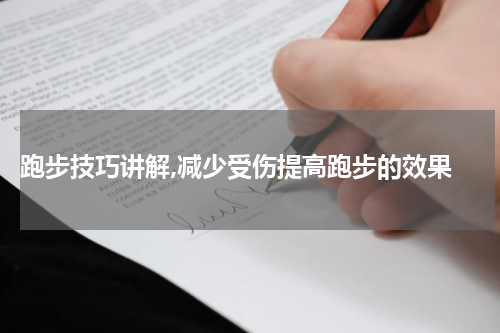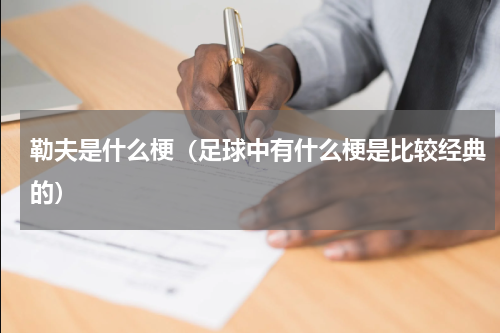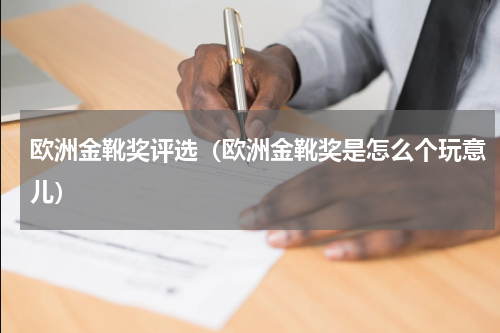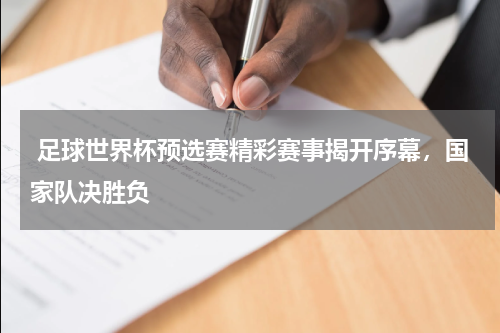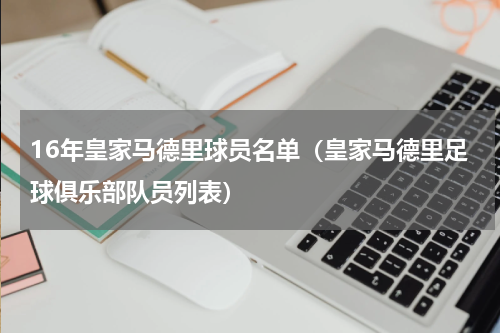到英国人家中做客,应准时赴约,并应准备一些小礼物送给主任,早到会被认为是不礼貌的。英国从2007年7月颁布法令,禁止在公共场所吸烟。发现擅自在室内吸烟会得到警告,严重者会重罚。除非有24小时营业执照,大部分英国酒吧安法律规定晚间11点即关门。英国人不吃动物的头、足和内脏器官,所以他们形象地称,他们只吃动物的肉,而不吃动物。在英国人的食物中马铃薯替代米饭作为主要的碳水化合物。

英国文化五大特点是什么啊赶着做PPT呃,希望多多帮助!!
别的地方看到过,我存下了,希望也能对你有所帮助1. 语言与交流隐私对英国人来说十分重要。个人问题,例如婚姻、有无孩子、恋爱关系、个人经济状况、健康等涉及私人的话题在相互不熟识的情况下应当尽量避免。英国人很有幽默感,有时他们在调侃的时候,可能看起来很严肃。他们善于自嘲,但绝不会对别人的遭遇幸灾乐祸。谈正事时,喜欢直接切入主题,表达意见也不愿拐弯抹角。英国人“No”的时候,他们要说的正是这个意思,并非要讨价还价。说话时候要注意自己的身体语言,不要用手来指着他人,因为在英国这样的行为被认为是不友好的动作,在说话的时候不要靠对方太近。2. 风俗礼仪与生活习惯英国人普遍有一种强烈的社会责任感,对公共事业、慈善事业等都很关注。英国人很注重礼貌修养,谈话总习惯轻声细语,很少大声喧哗。在他们眼里,高声喊叫(特别是在楼外喊人)是一种不文明的行为(球赛中除外)。英国人彬彬有礼,提出请求时说“Please”,接受了帮助或者服务后说“Thank you”,无论事情是多么微不足道。先人后己的礼让行为在英国很普遍。有“女士优先”的良好社会风气,对妇女老人都是很尊重的。英国人很自觉地遵守公共秩序,需要等待时会自觉排队。在自动提款机旁,人们会有意识地与正在使用机器的人保持合理的距离。在拥挤的地方,人们习惯尽量保持距离,避免碰撞。在自动扶梯上会自觉靠右站好,以便急于通行的人从左侧通过。英国人平时在穿着方面比较随便,以休闲为主。但是在正式场合(商务会面或晚宴)会着相应正装。一般男士为正式西装,女士为职业装或礼服。拜访朋友前要提前通知对方,不速之客会让人讨厌。应避免在晚上10点后打电话到别人家。到英国人家中做客,应准时赴约,并应准备一些小礼物送给主任,早到会被认为是不礼貌的。餐后应留下来进行社交谈话,如果一吃完就告辞是非常不礼貌的。英国从2007年7月颁布法令,禁止在公共场所吸烟。你确实想吸烟,要到户外请请勿乱扔烟头。如果想在自己住宿的室内吸烟应该先整的房东和其他方可的许可。发现擅自在室内吸烟会得到警告,严重者会重罚。英国人喜欢互赠贺卡,逢年过节,亲友生日,结婚或生病等都喜欢送贺卡恭喜或者慰问,以表心意。酒吧是英国人喜欢与朋友相聚的社交中心。中国学生可能会被邀请出去喝一杯“go out to have a pint”,作为与英国学生社交的开始。除非有24小时营业执照,大部分英国酒吧安法律规定晚间11点即关门。3、在餐馆和商店中安静地吃东西并且吃完自己餐盘里所有食物是礼貌的行为。把刀叉平行放在餐盘上表明已经吃完了。如果没吃完,就把刀和叉分开成八字形放在餐盘上。英国人喜欢在吃饭的时候聊天。但要注意,吃东西的时候张大嘴,哪怕是说话,是不礼貌的行为。诀窍是:吃东西和说话交替进行;指望嘴里放少量食物。如果必须张大嘴,请用一只手遮挡它。英国人不吃动物的头、足和内脏器官,所以他们形象地称,他们只吃动物的肉,而不吃动物。在英国人的食物中马铃薯替代米饭作为主要的碳水化合物。如果不习惯用餐时吃马铃薯,不要不好意思要米饭。在资助快餐店中,顾客在餐后应当收拾废弃物。英国人喜欢明码标价,不喜欢讨价还价。英国人有付小费的习惯,但不是很严格。
谁能给我一个介绍英国的PPT啊
英国留学与风俗民情介绍及谘询-PPT免费下载|PPT模板|PPT素材|PPT背景...http://www.51ppt.com.cn/Soft/PPTResources/studyabroad/200507/Soft_20050703212957.html
求关于介绍英国大本钟、巨石阵、伦敦大桥的英语ppt演讲稿
神秘的古建筑群——巨石阵,究竟是如何建造而成的? Rocking at Stonehenge Stonehenge is an ancient circle of rocks in southern England. You can see it from the road as you drive across Salisbury Plain (索尔兹伯里平原). There are no big towns or buildings close by, so it catches your eye immediately. The rocks stand there big, rough, dark, silent and mysterious. People have always wondered about Stonehenge: who built it, when was it built, how was it built and, especially, why was it built? Archaeologists (they study how people lived in the past) have answers to most of the questions. Stonehenge was built by ancient Britons 4,600 years ago, about the same time as the pyramids in Egypt. The heavy stones were brought from hundreds of miles away and it took many years to build Stonehenge. So, why did the ancient Britons go to all this trouble? The answer is, they wanted to get to the “afterlife.”The ancient Britons believed in a life after death and that when people died they went to another place, a spirit place, to live. Stonehenge was the gateway to that spirit place. So, Stonehenge was about death but death, to the ancient Britons, was not a sad thing. It was, apparently, an opportunity to party! Archaeologists have found a town close to Stonehenge. They say people went to this town at special times of the year, “to feast and party.” They came at the summer solstice and the winter solstice: the longest and shortest days of the year. At those times, people would come from all over southern England and even Europe to bury the ashes and bones of dead people near the ancient stones. Then they would go to the nearby town and the party would begin. Everyone would be “rocking” at Stonehenge.
要一份介绍英国政治体系的资料
Politics of the United KingdomThe politics of the United Kingdom of Great Britain and Northern Irelandhas taken place in the framework of a constitutional monarchy, in which the Monarch is head of state and the Prime Minister of the United Kingdom is the head of government. Executive power is exercised by the UK government, the devolved governments of Scotland and Wales, and the Executive of Northern Ireland. Legislative power is vested in both the government and the two chambers of Parliament, the House of Commons and the House of Lords, as well as in the Scottish parliament and Welsh and Northern Ireland assemblies. The judiciary is independent of the executive and the legislature, the highest national court being the Supreme Court of the United Kingdom.The UK is a multi-party system and since the 1920s, the two largest political parties have been the Conservative Party and the Labour Party. Though coalition and minority governments have been an occasional feature of parliamentary politics, the first-past-the-post electoral system used for general elections tends to maintain the dominance of these two parties, though each has in the past century relied upon a third party to deliver a working majority in Parliament.Growing support for Nationalist parties in Scotland and Wales led to proposals for devolution in the 1970s though only in the 1990s did devolution actually happen. Today, Scotland, Wales and Northern Ireland each possess a legislature and government alongside that of the United Kingdom, responsible for devolved matters. However, it is a matter of dispute as to whether increased autonomy and devolution of executive and legislative powers has contributed to a reduction in support for full independence. The principal pro-independence party, the Scottish National Party, won 20 extra MSPs at the 2007 Scottish parliament elections and now forms the Scottish Government as a minority administration, with plans to hold a referendum on negotiating for independence, before 2011. In Wales, the nationalist party, Plaid Cymru, is the junior coalition partner in the Welsh Assembly Government although unlike the Scottish National Party it does not officially advocate complete secession from the United Kingdom. In Northern Ireland, the largest Pro-Belfast Agreement party, Sinn Féin, not only advocates Northern Ireland’s unification with the Republic of Ireland, but also abstains from taking their elected seats in the Westminster government, as this would entail taking a pledge of allegiance to the British monarch.The constitution is uncodified, being made up of constitutional conventions, statutes and other elements.This system of government, known as the Westminster system, has been adopted by other countries as well, such as Canada, India, Australia, New Zealand, Singapore, Malaysia and Jamaica, countries that made up part of the British Empire.Monarchy of the United KingdomThe head of state, theoretical and nominal source of executive, judicial and legislative power in the UK, is the British monarch, currently Queen Elizabeth II. However, sovereignty in the UK no longer rests with the monarch, since the English Bill of Rights in 1689, which established the principle of Parliamentary sovereignty. Nonetheless, the monarch is still known as the sovereign.ExecutiveExecutive power in the United Kingdom is exercised on behalf of the Sovereign, in whom executive power is nominally vested, by the UK government and the Scottish Government, the Welsh Assembly Government and the Northern Ireland Executive.The United Kingdom GovernmentThe monarch appoints a Prime Minister as the head of Her Majesty’s Government in the United Kingdom, guided by the strict convention that the Prime Minister should be the member of the House of Commons most likely to be able to form a Government with the support of that House. In practice, this means that the leader of the political party with an absolute majority of seats in the House of Commons is chosen to be the Prime Minister. The Prime Minister then selects the other Ministers which make up the Government and act as political heads of the various Government Departments. About twenty of the most senior government ministers make up the Cabinet and approximately 100 ministers in total comprise the government. In accordance with constitutional convention, all ministers within the government are either Members of Parliament or peers in the House of Lords.As in some other parliamentary systems of government (especially those based upon the Westminster System), the executive (called "the government") is drawn from and is answerable to Parliament - a successful vote of no confidence will force the government either to resign or to seek a parliamentary dissolution and a general election. In practice, members of parliament of all major parties are strictly controlled by whips who try to ensure they vote according to party policy. If the government has a large majority, then they are very unlikely to lose enough votes to be unable to pass legislation.
求英文介绍英国历史100字左右
1、英文
British history began in Germanic and Celtic, and later in England, Wales and Scotland. Its origin can be traced back to Roman rule.
Britain is called the United Kingdom of Great Britain and Northern Ireland. It consists of Northern Ireland and the whole history of Britain is made up of the interweaving of the four regions.
Wales became part of the Kingdom of England in 1535. The defeat of the Spanish Invincible Fleet in 1588 by the Naval Battle of Gravoline frustrated the invasion of foreign Catholic forces.
basically eliminating the threat of Catholicism and consolidating the achievements of religious reform.
In 1640, Britain broke out the first bourgeois revolution in the world and became the pioneer of the bourgeois revolution. The Republic was proclaimed on 19 May 1649.
The restoration of the dynasty in 1660 and the "Glorious Revolution" in 1688 established the constitutional monarchy.
In 1707, England merged with Scotland. Through the Seven Years’War, Britain laid the foundation of the Sunset Empire and gained the hegemony of the sea.
It was merged with Ireland in 1801. After the Napoleonic War, Britain completed the imperial hegemony of the Sunset Empire.
From the second half of the 18th century to the first half of the 19th century, it became the first country in the world to complete the industrial revolution.
The nineteenth century was the heyday of the British Empire. The colonies occupied in 1914 were 111 times larger than those in the mainland.
They were the first colonial power and claimed to be the "Sunset Empire".
In 1922, the Republic of Ireland became independent, and Northern Ireland remained in the United Kingdom, that is, Northern Ireland today.
2、中文
英国历史始于日耳曼人与凯尔特人,亦是后来的英格兰、威尔士、苏格兰,其源头可追溯到罗马统治时期。
英国全称为大不列颠及北爱尔兰联合王国,由和北爱尔兰组成,而整个英国的历史也就是由这四个区域的历史交织组成。
1535年威尔士成为英格兰王国的一部分,1588年格拉沃利讷海战打败西班牙无敌舰队使英国挫败了国外天主教势力的入侵,基本消除了天主教的威胁,巩固了宗教改革的成果。
1640年英国在全球第一个爆发资产阶级革命,成为资产阶级革命的先驱。1649年5月19日宣布成立共和国。1660年王朝复辟,1688年发生“光荣革命”,确立了君主立宪制。
1707年英格兰与苏格兰合并,通过七年战争英国奠定日不落帝国的基础,并获取了海上霸主。
1801年又与爱尔兰合并。拿破仑战争后英国完成了日不落帝国的霸业。18世纪后半叶至19世纪上半叶,成为世界上第一个完成工业革命的国家。
19世纪是大英帝国的全盛时期,1914年占有的殖民地比本土大111倍,是第一殖民大国,自称“日不落帝国”。
1922年爱尔兰共和国独立,爱尔兰北部仍留在联合王国内,即是今天的北爱尔兰。
扩展资料:
英国历史大事:
1、英西战争
英西战争(英语:Anglo-Spanish War;西班牙语:Guerra anglo-española)(1585年–1604年)指西班牙帝国与英格兰王国之间未经正式宣战的间歇性冲突。
英西战争由多场大范围战役组成,起于1585年英国与荷兰签订楠萨奇条约,拥护荷兰抵抗西班牙帝国的统治。
1587年英国于加的斯率先夺胜,翌年于1588年格拉沃利讷海战击退西班牙无敌舰队,但1589年科伦纳·里斯本远征败北后情势逆转,西班牙在弗洛雷斯海战重振海军实力。
而英国分别在以后的1595-1596年西印度群岛远征和1597年的埃塞克斯-罗利远征决定性失败。西班牙先后在1596年和1597年派遣两支无敌舰队趁胜追击,但在恶劣的气候下遭挫。
无敌舰队战败后的十年间,西班牙加强了海军实力,对后来南美洲贵重金属的运输影响深远。而战争在1590年代走入僵局。
1602年英国与荷兰通过多佛海峡海战一度获取英吉利海峡乃至欧洲西部海域的主导权并持续两年。
1601-1604年西班牙进行了人类史上较为残酷、血腥的奥斯坦德之围,经过三年的围攻,英荷联军最终投降,西班牙军队拿下了这座城堡,使英荷西三方都想结束战争,回到和平。
1604年由腓力三世与新任英格兰国王詹姆斯一世代表签订伦敦条约后画下句点。西英协议分别停止对爱尔兰与尼德兰的军事介入,且英方放弃在公海上的劫掠行为。
缔约两方皆有达成部分目标,战后西班牙重获欧洲西部海域优势。条约整体有利于西班牙。但整起战争过程对两国财政都造成了相当程度的负担,而英国则进入40年的萎靡期。
2、蔷薇战争
蔷薇战争(又称玫瑰战争;英语:Wars of the Roses;1455年─1485年)是英王爱德华三世(1327年-1377年在位)的两支后裔:兰开斯特家族和约克家族的支持者为了争夺英格兰王位而发生断续的内战。
两大家族都是金雀花王朝王室的分支,约克家族是爱德华三世的第四子的后裔、兰开斯特家族是爱德华三世的第三子的后裔。
玫瑰战争是约克家族的爱德华三世的第五代、第六代继承人对兰开斯特家族的爱德华三世的第四代、第五代继承人的王位战争。
“玫瑰战争”一名并未使用于当时,而是在16世纪,莎士比亚在历史剧《亨利六世》中以两朵玫瑰被拔标志战争的开始后才成为普遍用语。
此名称源于两个家族所选的家徽,兰开斯特的红蔷薇Rosa gallica和约克的白蔷薇Rosa ×alba。
战争最终以兰开斯特家族的亨利七世与约克的伊丽莎白联姻为结束,也结束了法国金雀花王朝在英格兰的统治,开启了新的威尔士人都铎王朝的统治。 也标记着在英格兰中世纪时期的结束并走向新的文艺复兴时代。
为了纪念这次战争,英格兰以玫瑰(这里玫瑰实为欧洲古老蔷薇)为国花,并把皇室徽章改为红白蔷薇。
参考资料来源:百度百科——英国历史
参考资料来源:百度百科——玫瑰战争
参考资料来源:百度百科——英西战争


